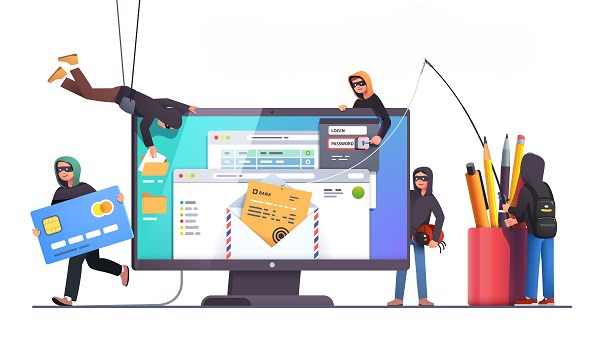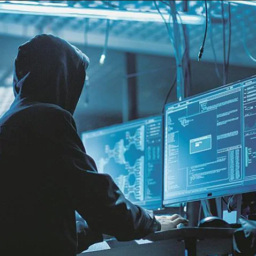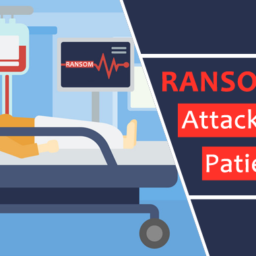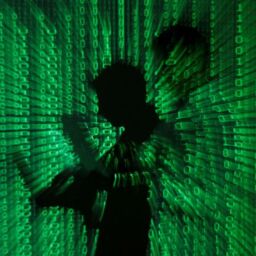
Top cyber crime trends to watch in India
What is cyber crime? Cyber crime is a broad term that is used to define criminal activity in which computers or computer networks are a tool, a target, or a place of criminal activity and include everything from electronic wracking to denial of service attacks. It is a general term that covers crimes like phishing, Credit card frauds, bank robbery, illegal downloading, industrial espionage, child pornography, kidnapping children via chat rooms, scams, cyber terrorism, creation and or distribution of viruses, spam and so on.
It also covers traditional crimes in which computers or networks are used to enable illicit activity. Cyber crime is increasing day by day, nowadays it has become a new fashion to earn money by fraud calls or to take revenge through hacking other accounts.
Types Of Cyber crimes:
Cyber crime ranges from a variety of activities. Cyber crime can be basically divided into three major categories:
- Cyber crimes against persons like harassment occur in cyberspace or through the use of cyberspace.Harassment can be sexual, racial, religious, or other.
- Cyber crimes against property like computer wreckage (destruction of others’ property), transmission of harmful programs, unauthorized trespassing, unauthorized possession of computer information.
- Cyber crimes against government like Cyber terrorism
Crimes against persons are:
- Cyber-Stalking: It means to create a physical threat that creates fear using computer technology such as the internet, e-mail, phones, text messages, webcam, websites or videos.
- Dissemination of Obscene Material: It includes Indecent exposure/ Pornography (basically child pornography), hosting of web site containing these prohibited materials. These obscene matters may cause harm to the mind of the adolescent and tend to deprave or corrupt their mind.
- Defamation: It is an act of imputing any person to lower down the dignity of the person by hacking his mail account and sending some mails using vulgar language to unknown persons mail account.
- Hacking: It means unauthorized control/access over a computer system and act of hacking completely destroys the whole data as well as computer programmers. Hackers usually hack telecommunication and mobile networks.
- Cracking: It is one of the serious cyber crimes known till date .Cracking means that a stranger has broken into your computer systems without your knowledge and consent and has tampered with precious confidential data and information.
- E-Mail Spoofing: A spoofed email may be said to be one, which misrepresents its origin. It shows its origin to be different from which actually it originates.
- SMS Spoofing: Spoofing is a blocking through spam which means the unwanted uninvited messages.Wrongdoer steals mobile phone number of any person and sends SMS via internet and receiver gets the SMS from the mobile phone number of the victim. It is a very serious cyber crime against any individual.
- Carding: It means false ATM cards i.e. Debit and Credit cards used by criminals for their monetary benefits through withdrawing money from the victim’s bank account Mala-fidely. There is always unauthorized use of ATM cards in this type of cyber crime.
- Cheating & Fraud: It means the person who is doing the act of cyber crime i.e. stealing password and data storage has done it with a guilty mind which leads to fraud and cheating.
- Child Pornography: It involves the use of computer networks to create, distribute, or access materials that sexually exploit underage children.
- Assault by Threat: Refers to threatening a person with fear for their lives or lives of their families through the use of a computer network i.e. E-mail, videos or phones.
Crimes against Property:
As there is rapid growth in international trade where businesses and consumers are increasingly using computers to create, transmit and to store information in the electronic form instead of traditional paper documents.
There are certain offenses which affects person’s properties which are as follows:
Intellectual Property Crimes: Intellectual property consists of a bundle of rights. Any unlawful act by which the owner is deprived completely or partially of his rights is an offense. The common form of IPR violation may be said to be software piracy, infringement of copyright, trademark, patents, designs and service mark violation, theft of computer source code, etc.
Cyber Squatting: It means where two persons claim for the same Domain Name either by claiming that they had registered the name first on by right of using it before the other or using something similar to that previously. For example two similar names i.e. www.yahoo.com and www.yahoo.com.
Cyber Vandalism: Vandalism means deliberately destroying or damaging property of another. Thus cyber vandalism means destroying or damaging the data when a network service is stopped or disrupted. It may include within its purview any kind of physical harm done to the computer of any person. These acts may take the form of the theft of a computer, some part of a computer or a peripheral attached to the computer.
Hacking Computer System: Hacktivist attacks include Famous Twitter, a blogging platform by unauthorized access/control over the computer. Due to the hacking activity there will be loss of data as well as computers. Also research especially indicates that those attacks were not mainly intended for financial gain too and to diminish the reputation of a particular person or company.
Transmitting Virus: Viruses are programs that attach themselves to a computer or a file and then circulate themselves to other files and to other computers on a network. They usually affect the data on a computer, either by altering or deleting it. Worm attacks play a major role in affecting the computerized system of the individuals.
Cyber Trespass: It means to access someone’s computer without the right authorization of the owner and does not disturb, alter, misuse, or damage data or system by using wireless internet connection.
Internet Time Thefts: Basically, Internet time theft comes under hacking. It is the use by an unauthorized person of the Internet hours paid for by another person. The person who gets access to someone else’s ISP user ID and password, either by hacking or by gaining access to it by illegal means, uses it to access the Internet without the other person’s knowledge. You can identify time theft if your Internet time has to be recharged often, despite infrequent usage.
Cyber crimes against Government
There are certain offenses done by a group of persons intending to threaten the international governments by using internet facilities. It includes:
Cyber Terrorism: Cyber terrorism is a major burning issue in the domestic as well as global concern. The common form of these terrorist attacks on the Internet is by distributed denial of service attacks, hate websites and hate e-mails, attacks on sensitive computer networks etc. Cyber terrorism activities endanger the sovereignty and integrity of the nation.
Cyber Warfare: It refers to politically motivated hacking to damage and spying. It is a form of information warfare sometimes seen as analogous to conventional warfare although this analogy is controversial for both its accuracy and its political motivation.
Distribution of pirated software: It means distributing pirated software from one computer to another intending to destroy the data and official records of the government.
Possession of Unauthorized Information: It is very easy to access any information by the terrorists with the aid of internet and to possess that information for political, religious, social, ideological objectives.
Conclusion
The IT Act and the Rules promulgated thereunder regulate the cyber law regime. When the IT Act is unable to provide for any specific sort of offense or if it does not include exhaustive provisions with regard to an offense, one may also turn to the provisions of the Indian Penal Code, 1860. However, the current cyber law system is still insufficient to cope with the wide range of cybercrimes that exist. With the country advancing towards the ‘Digital India’ movement, cybercrime is continuously developing, and new types of cybercrime are being added to the cyber law regime on a daily basis. So, there is a need to bring some amendments to the laws to reduce such crimes.
















